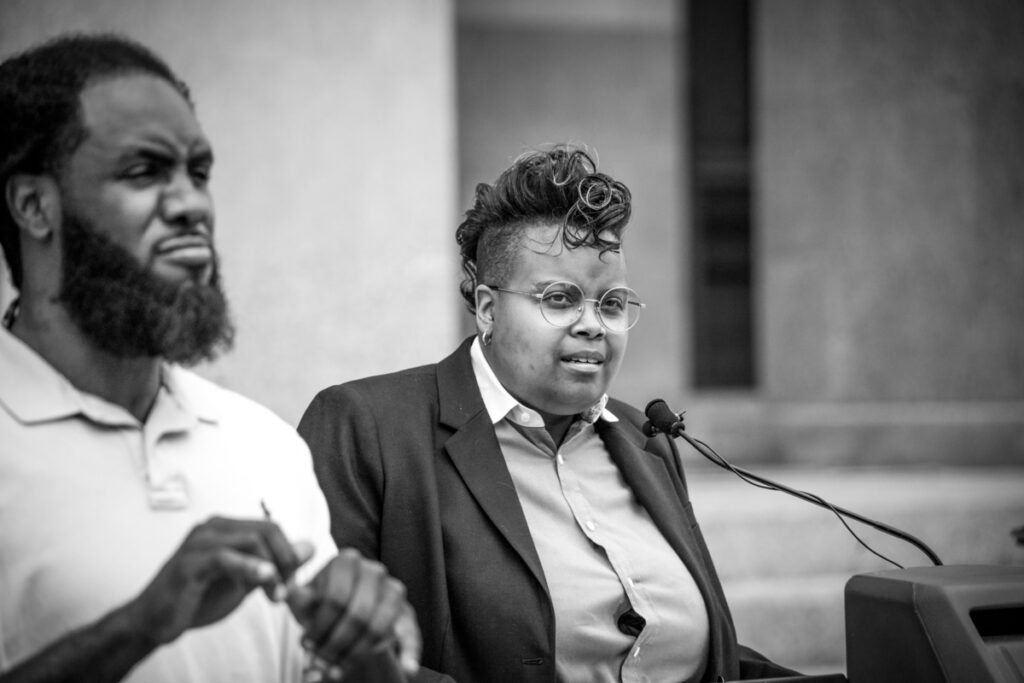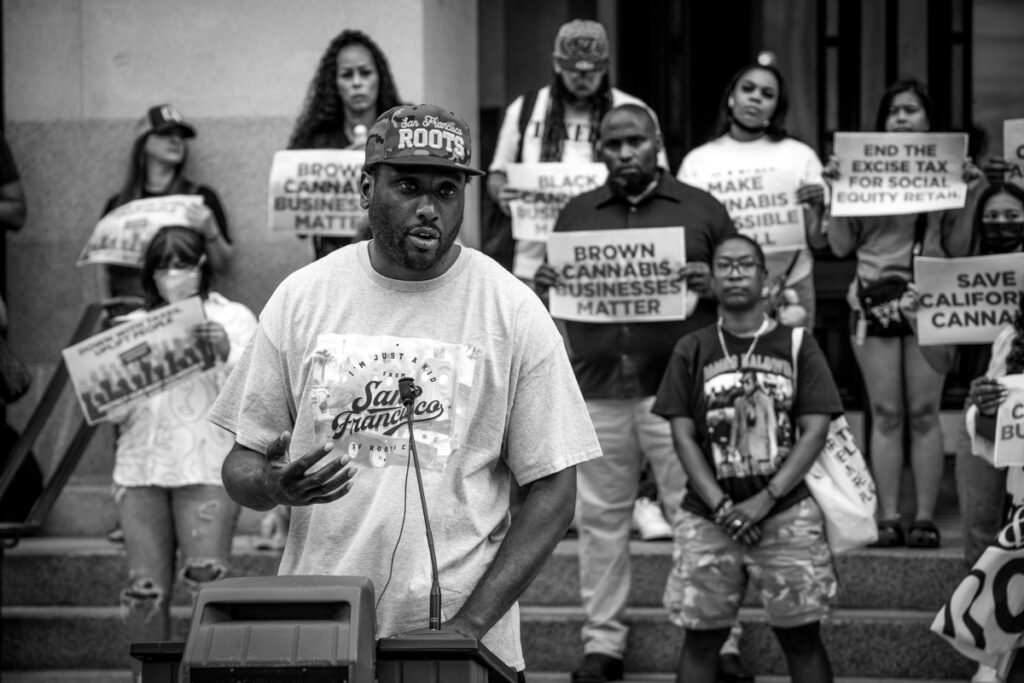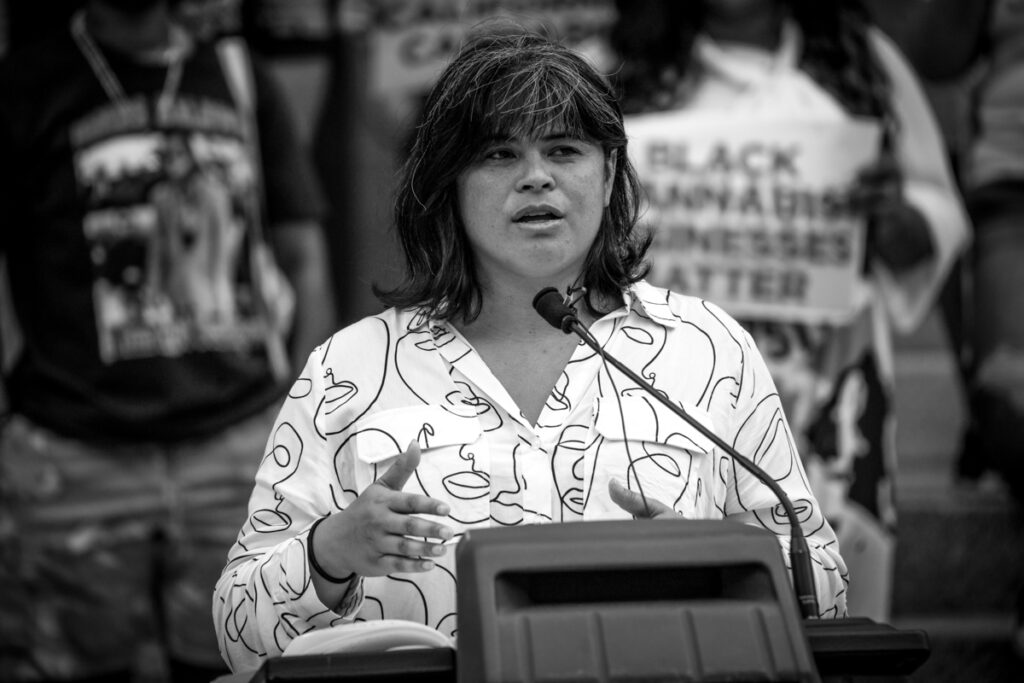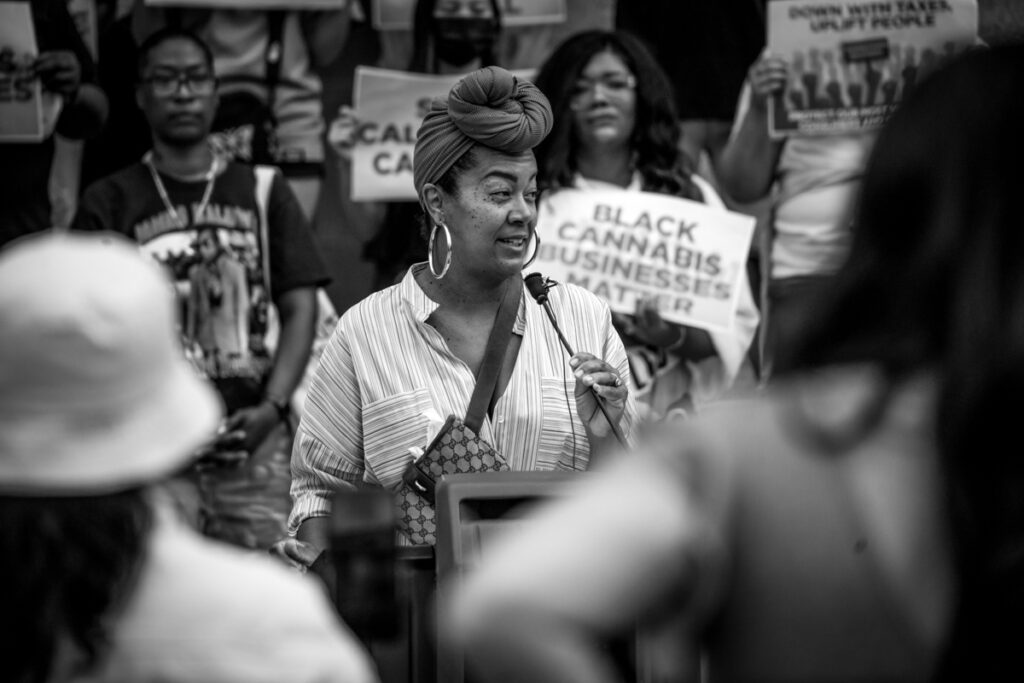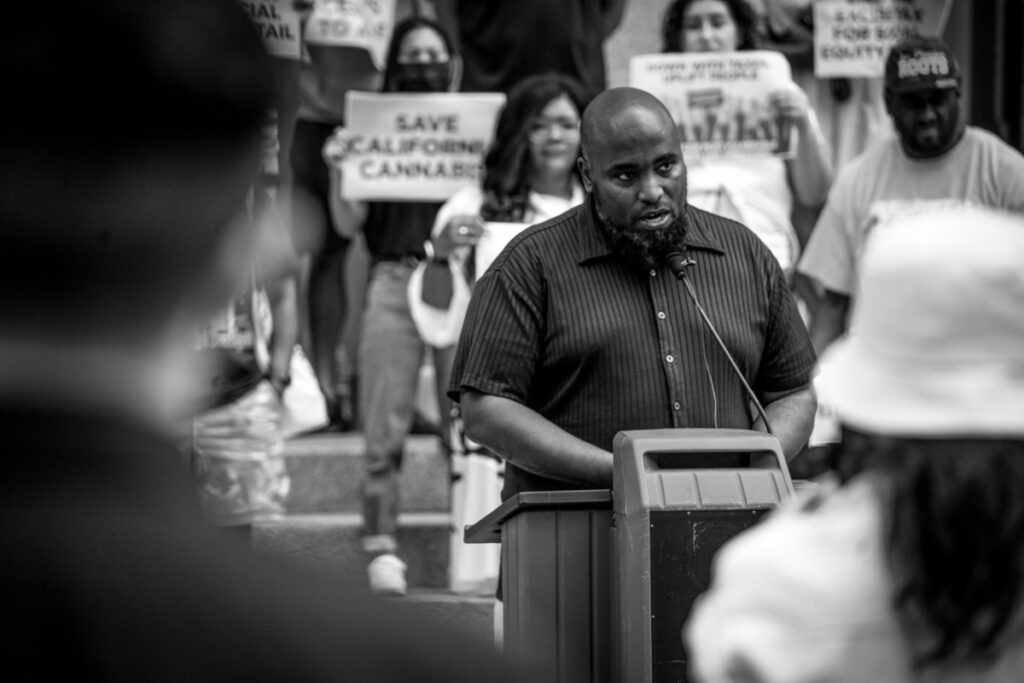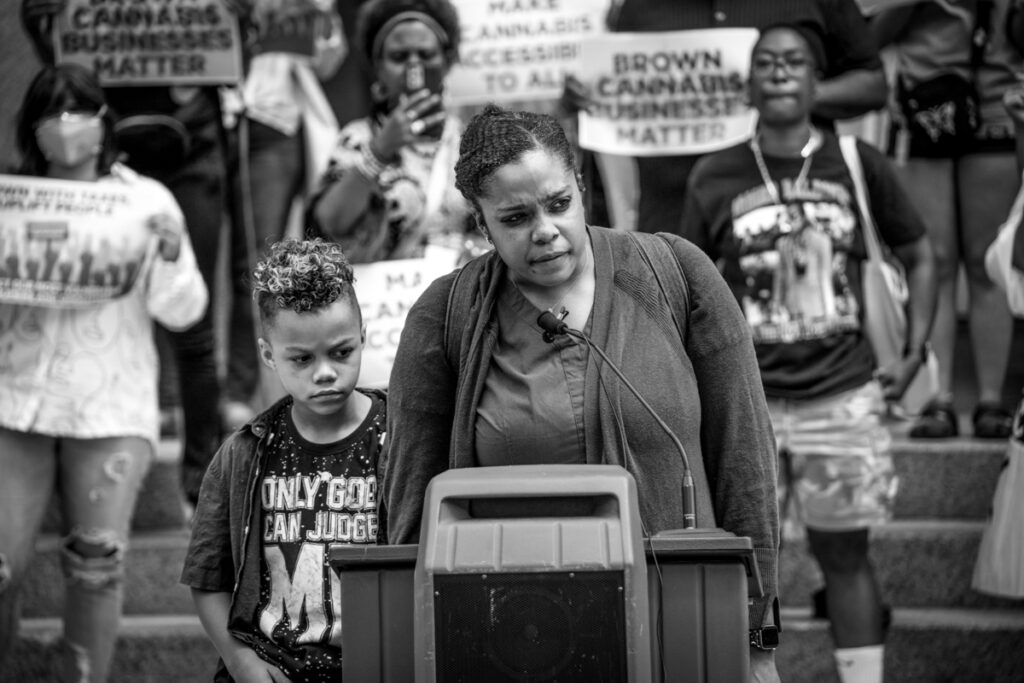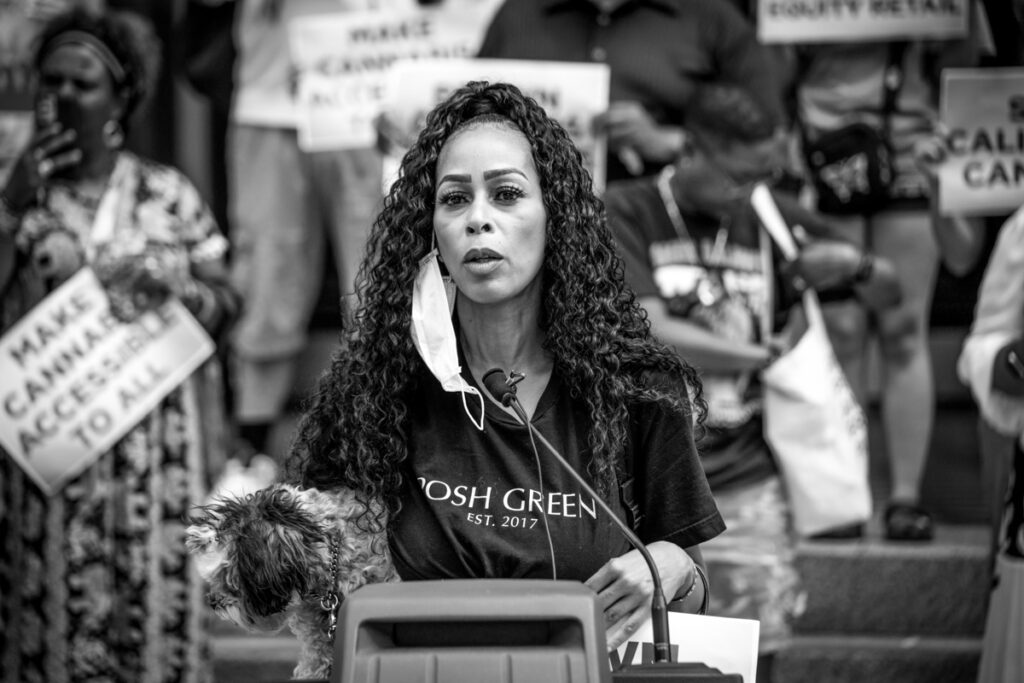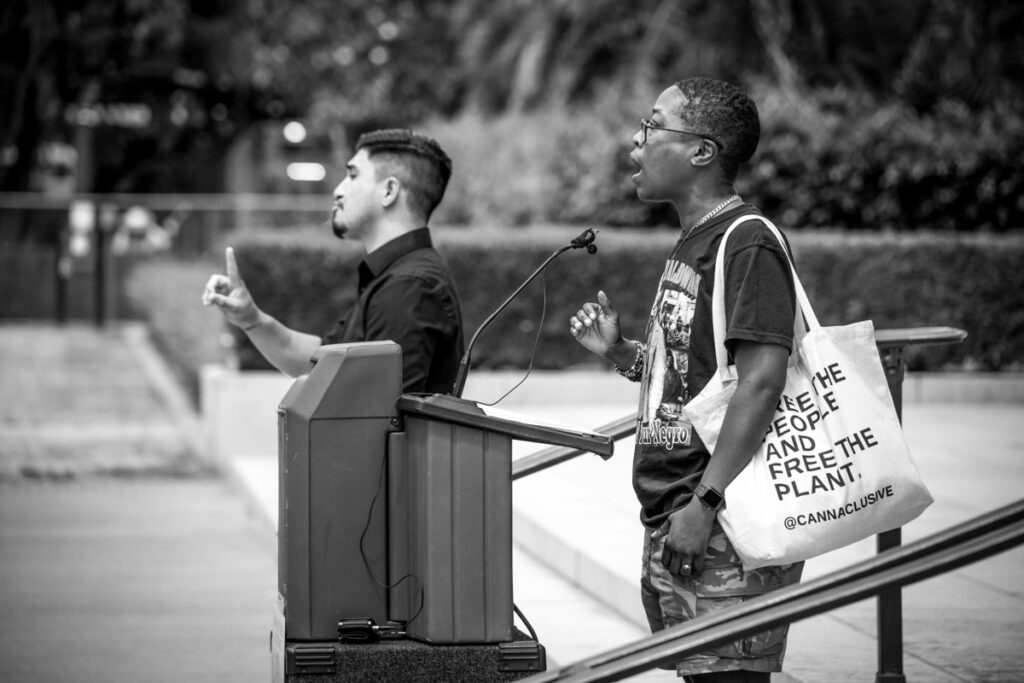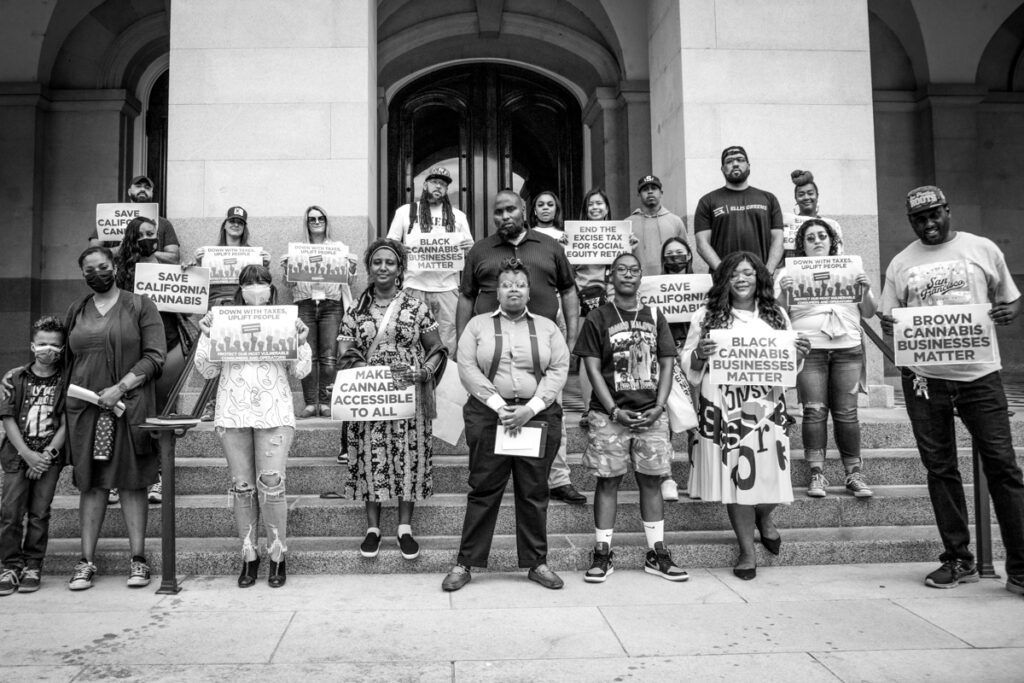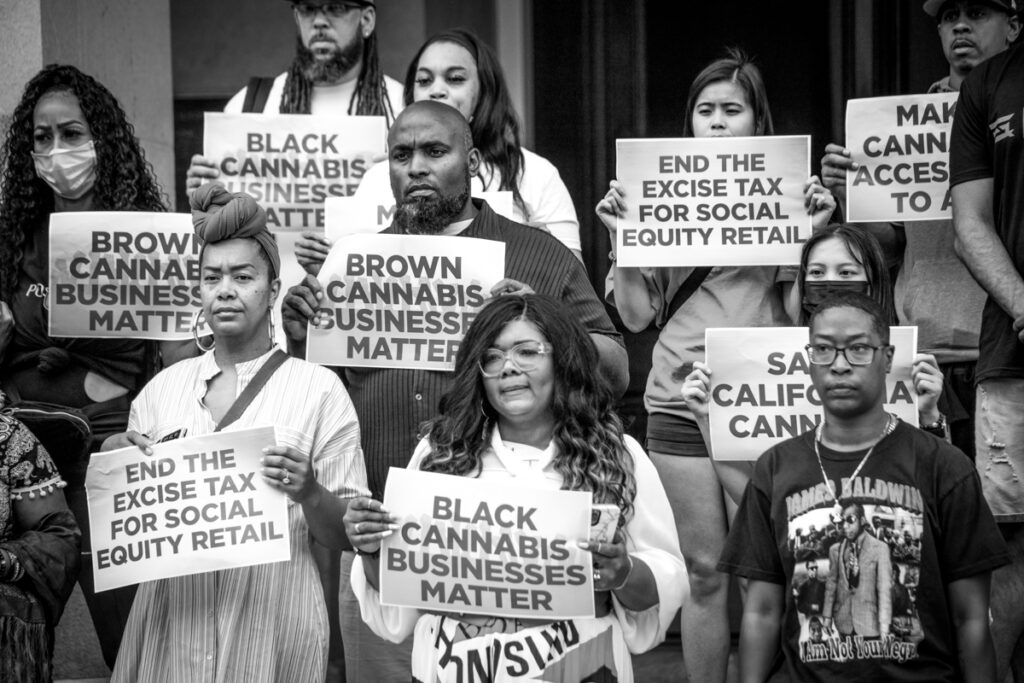In response to the May 13 release of Governor Newsom’s 2022 California state budget, Supernova Women, an Oakland nonprofit that works to create opportunities for Black and Brown people in the cannabis space, hosted a Capitol steps “Down with the Taxes, Uplift the People” Rally and Press Conference on Thursday, June 2, 2022.
The rally was attended by a powerful group of people representing the cannabis industry. Many made statements targeted at lawmakers, demanding that they fix the taxation of cannabis that is decimating small businesses in the industry.
According to Amber Senter, chairman and Executive Director of Supernova Women, who organized the event, the rally offered an important message to lawmakers.
“Yesterday, we stood up on behalf of Black + Brown cannabis patients, consumers and business owners at the California State Capitol. Our message: we will not stand by and let the government price us out of the cannabis industry with an arbitrary, unfair tax structure that is disproportionately affecting Black + Brown communities,” Senter posted in a statement today.
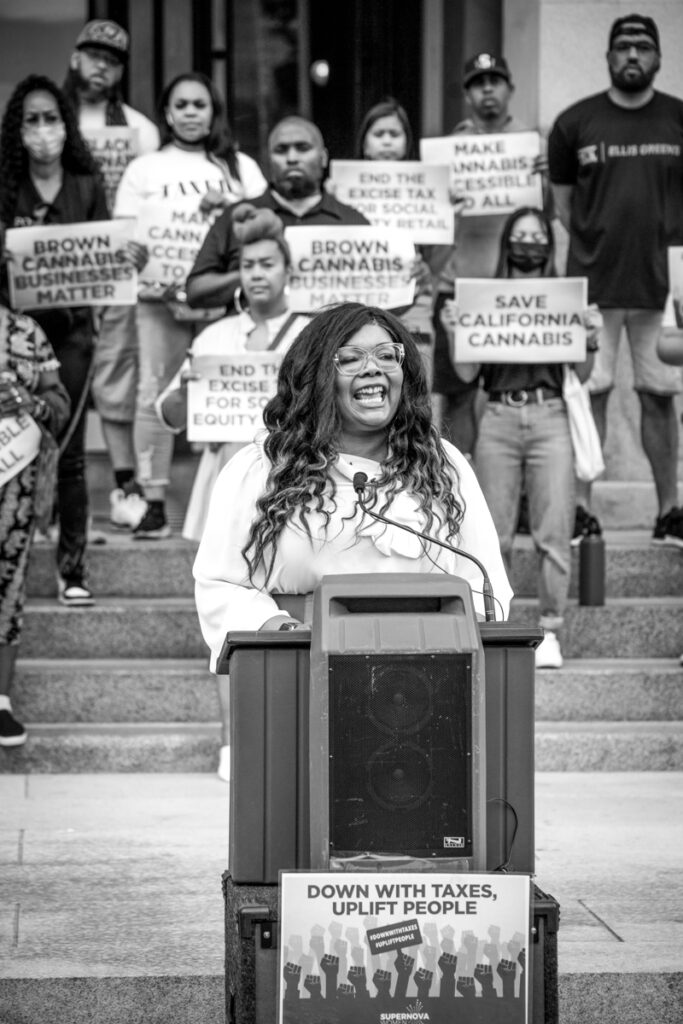
The line-up of cannabis stakeholders, policy makers, operators, and patients who attended included Nina Parks, activist and CEO of Gift of Doja, Chaney Turner, Executive Director of Beyond Equity, Malaki Amen, Executive Director of California Urban Partnership, Whitney Beatty, CEO of Josephine & Billies, and Maisha Bahati, CEO of Crystal Nugs Inc., Xóchitl Martínez, Chapter Leader of Veterans Walk and Talk Bay Area, Leonard Watkins of Anonymous Caregivers, Reese Benton, Founder and CEO of Posh Green Collective, Morris Kelly, CEO of SF Roots, and more.
Many spoke at the event, sharing their stories and giving passionate pleas to lawmakers to intervene to save small businesses in cannabis.
Senter spearheaded the November 29, 2021 Oakland City Hall Rally and Press Conference following the vandalization and robberies of 15 licensed social equity cannabis businesses as well as the Capitol Steps January 13, 2022 #NODRUGWARV2 Rally and Press Conference with Origins Council.
Thursday’s Rally sought to highlight three urgent asks for the Governor and the Budget and Finance Committee ahead of their July 1, 2022 budget deadline: repeal the excise tax for social equity retailers across the state, reduce the excise tax to 5% for all others, and codify a statewide definition of social equity for the purpose of establishing eligibility for the state excise tax exemption.
“Governor Newsom promoted Prop. 64 less as an opportunity for tax revenue and more as a historical opportunity for racial and social justice and economic empowerment — to remedy the damage of a drug war that had disproportionately criminalized Blacks and Latinos,” Senter said.
“And yet five years later, California’s Black and Brown cannabis operators, many of whom voted for Newsom not once but twice – are literally sitting on the brink of extinction, due to onerous state taxes, while the Governor sits on a $100B surplus. Where is the racial and social justice in that,” Senter said.
“Without meaningful tax reform NOW, California’s few remaining BIPOC cannabis operators and social equity businesses will not survive, and the communities and patients they serve will not be able to access affordable and safe cannabis. This is a major health crisis today and a missed economic opportunity for tomorrow,” Senter said.
Under California State law, social equity programs, which are presently governed by local jurisdictions, cannot consider race or ethnicity as eligibility criteria (Proposition 209, 1996).
Rally organizers recommended a new statewide definition based on 51% ownership of a cannabis company and either 5 years of residency in a low-income community disproportionately impacted by the War on Drugs or having an immediate family member with a prior cannabis arrest or conviction.
Whitney Beatty, CEO of Josephine & Billies spoke about the important role that the city of LA can play in the industry.
“In 2020, 75% of cannabis-related arrests in Los Angeles were Blacks and Latinos, according to LAPD records,” Beatty said. “With Los Angeles’ majority-minority population, L.A. alone could help rewrite our state’s recent history of white operators dominating an industry that has physically, emotionally, psychologically, and economically imprisoned so many BIPOC people.”
But, Beatty added, “not without true tax reform at the State level that protects our vulnerable social equity operators and BIPOC patients.”
The Rally was in response to Governor Newsom’s recent cannabis Tax Proposal, which maintains the 15% excise tax but changes the point of collection from distribution to point of sale beginning January 1, 2023, with the intention to increase it to 19% in three years.
Rallygoers sought for a better option to reduce the cost burden to legal operators. The inability for companies to thrive due to burdensome regulations and high taxes has destroyed the hope that many had for decriminalizing cannabis.
“My great-grandfather was a sharecropper who bought his own freedom,” said Morris Kelly, CEO of SF Roots dispensary. “That’s the dream BIPOC California operators bought into with Prop 64, but the 26% increase in the excise tax will kill this dream, crushing my ability to turn a profit and compromising our community’s access to safe medicine. The excise tax gets externalized onto the end-consumer, which will only further drive patients to the illicit market where cannabis costs 40-60% less.”
Sen. Steven Bradford (District 35), author of SB1281 and SB1293, has voiced his support for the event via video, “Without meaningful changes to California’s cannabis tax policy, the industry is destined for failure, especially equity cannabis operators who are operating on a very thin margin.”
According to Senter, “For five years, our attempts at generational wealth and community empowerment have been thwarted by state-sanctioned exclusion, violence, and a Drug War 2.0 weaponized with oppressive taxes. Eliminating the excise tax for social equity operators and reducing it to 5% for all others would foster prosperity and social mobility for BIPOC operators while protecting BIPOC patient access to regulated and safe plant medicine. We are nearly out of time, but the Governor and Budget and Finance Committee can still change this. Let’s hope they do the right thing,” Senter said.
